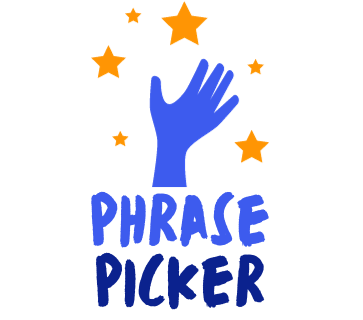Introduction
In the ever-evolving world of business, the phrase ‘best practices’ frequently enters discussions, whether in staff meetings, strategic summits, or online forums. Often hailed as a panacea for all operational challenges, ‘best practices’ is used in various contexts to embody ideal, time-tested methods that enable organizations to achieve their objectives efficiently. Nevertheless, there are equally useful alternatives to this phrase that carry the same implication. In this article, we will delve into the use of ‘best practices’, explore its disparate applications, and furnish you with synonyms that convey the same sentiment, all in an effort to enhance your professional vernacular.
Key Takeaways
- Understanding ‘Best Practices’: This phrase is widely used in various industries to denote the most efficient and effective way of completing a task or achieving a desired outcome.
- Importance of ‘Best Practices’: Following ‘Best Practices’ ensures consistency, high quality results and helps to prevent mistakes and avoid problems.
- Alternates to ‘Best Practices’: It can be substituted with phrases such as ‘successful strategies’, ‘proven methods’, ‘optimal procedures’, or ‘industry standards’.
Other Ways to Say “best practices”
- Optimal strategies
- Recommended methods
- Proven approaches
- Superior procedures
- Advised frameworks
- Efficient processes
- Established standards
- Effective behaviors
- Promising tactics
- Accepted conventions
- Preferred guidelines
- Highly rated techniques
- Quality actions
- Useful habits
- Favorable routines
Optimum Methodologies
When communicating formally, the phrase “best practices” can be replaced with more professional sounding terms such as optimum methodologies, preferred procedures, or ideal approaches. Using these alternatives not only adds a touch of formality, but also underlines the seriousness and precision of the matter being discussed. For instance, in a board meeting, saying Let’s implement the optimum methodologies for this project could convey a greater sense of purpose and dedication compared to using the more casual “best practices”. Furthermore, in formal documents or official correspondences, utilizing such substitutes for the phrase “best practices” could portray a more professional image. For these reasons, choosing a formal variant like optimum methodologies can be a wise choice in certain formal contexts.
Dear Sir/Madam,
I hope this mail finds you well.
I am writing to inform you about our latest business initiatives which aim to implement optimum procedures in all aspects of our work. The idea behind this approach is to promote efficiency and productivity in our day-to-day operations.
I am looking forward to your support and cooperation as we strive for excellence in our work habits.
Sincerely,
[Your Name]
How To Answer Formal
The term best practices is often used in formal settings to depict effective and efficient strategies or methods that are generally accepted as superior in generating results. This phrase is quite applicable and can be utilized in various contexts such as project management, technology, marketing, governance and more. For instance, in the field of project management, one could say, ‘Applying the best practices in project management, such as clearly defining goals, creating a comprehensive project plan and regularly monitoring project progress, significantly increases the likelihood of a project’s success‘.
The term highlights the importance of continuous improvement, learning from the experiences of others and implementing tried-and-true methods to achieve desired outcomes. It’s about leveraging what works well and applying it in a similar context for better productivity. Say for example, ‘Following best practices for coding in HTML, including proper indentation, using appropriate variable names and keeping code comments to a minimum, can simplify the debugging process and increase code efficiency‘.
- Employing best practices in customer service, such as active listening and empathetic communication, can greatly improve customer satisfaction levels.
- Adhering to best practices in blog writing, like maintaining a consistent voice, utilizing SEO keywords and providing value to readers, can significantly enhance blog engagement.
Dear Sender,
Thank you for your email related to the topic of ‘best practices’. I appreciate your interest.
I would be glad to share insights on the effective and most efficient applications and methods that are recognized as ‘best practices’ in our industry.
Looking forward to further discussions on the matter.
Best,
Your Name
Tried and True Tips
If you’re looking to converse in a less formal manner, you might want to replace ‘best practices’ with more friendly phrases like ‘tried and true tips’, ‘proven methods’, or simply ‘good ideas’. These phrases are more casual and can help foster a relaxed communicative environment. The choice to use these less formal alternatives can be motivated by a desire to avoid corporate jargon and make information more accessible and user-friendly.
Dear Team,
I hope this message finds you all well. I was thinking it could be really productive if we set up a meeting to discuss the tried and true methods we’ve found to be most effective in our work. Looking forward to hearing your thoughts.
Best,
[Your Name]
How To Answer Informally
When someone uses the phrase ‘best practices’, they are usually speaking in a professional or technical context referring to the most efficient way to get things done. However, when leveraged informally, the phrase roughly translates to something akin to ‘the best way to do something’ or ‘the easiest way to achieve a goal’. For instance, you can talk about ‘best practices’ for watering your garden, which could involve watering early in the morning to minimize evaporation.
Similarly, when discussing ‘best practices’ for keeping a tidy home, you might suggest doing small cleaning tasks daily to avoid an overwhelming mess at the end of the week. The phrase ‘best practices’ is flexible and can be adapted to any number of scenarios, whether they are technically complex or everyday habits. The key to using ‘best practices’ informally is to understand that it essentially means making tasks more manageable and efficient.
- Instead of ‘best practices’ for dishwashing, you might say ‘the easiest way to keep on top of the dishes’.
- For a pet owner: ‘the most efficient way to house-train your dog’ instead of ‘best practices for house-training a pet’.
- In the context of handling difficult social situations, one could say ‘the smoothest way to navigate family drama’ rather than ‘best practices for managing family conflict’.
Hi there,
I saw your message about best practices. Absolutely, I couldn’t agree more. Putting in place a system of best practices can really streamline our processes and boost efficiency. Let’s talk more about this over a coffee break or something.
Look forward to it,
Your name
Is It Correct to Say “best practices”?
It’s not simply accurate, but also widely accepted to say best practices. This phrase is poignant, addressing methods or techniques that have consistently shown results superior to those achieved by other means. It’s not perceived as rude but rather as a professional and general term binding a community around a common understanding of efficient workflow. Using best practices signifies respect for established standards and oftentimes implies a commitment to continuous improvement.
Alternatives to this phrase might be ‘standard procedures’, ‘proven methods’, or ‘recommended strategies’. These terms also capture the focus on efficacy and consensus within a given field, but may not carry the same weight as best practices when it comes to implying tried and tested methods with measurable success.
In conclusion, I hope that this article has provided insight into the use of the phrase best practices, enhancing your professional vocabulary and pushing the envelope of your effective communication.



